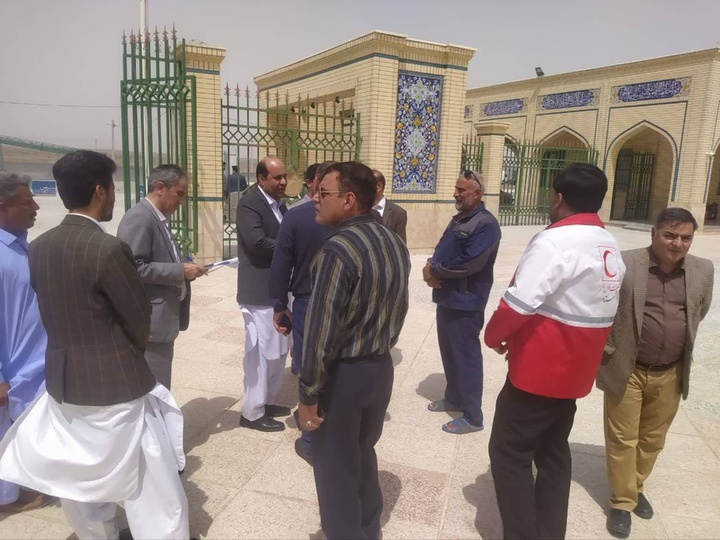In the sweltering heat of Iran’s eastern border, where roads stretch into Pakistan and caravans arrive from afar, Imam Reza Shrine’s roadside cultural and hospitality complex in Mirjaveh rises as a dignified refuge for pilgrims and travelers.
This is more than a building. It is a strategic and spiritual landmark that has transformed Mirjaveh into a gateway of service and honorable hosting.
Sajjad Safarzadeh, director in charge of Imam Reza Shrine’s roadside complexes, described Mirjaveh facility as “a key border center that has recently hosted several national and provincial officials”.
Among them were Mehdi Hasan Abbasi, director general of border affairs at the Ministry of Interior, who called the complex “unparalleled among the country’s border facilities,” and Mohammad Jalal Ma’ab, head of the Committee for the Development and Reconstruction of Holy Shrines. Other visitors included the deputy head of the National Arbaeen Headquarters, the deputy for security and law enforcement in Sistan and Baluchestan province, and a delegation of provincial and local officials.
Their visits, ahead of the Arbaeen pilgrimage season, focused on reviewing the infrastructure prepared for lodging, welfare services, medical support, and religious-cultural programming designed to welcome pilgrims and travelers.
The complex offers well-equipped accommodations, medical facilities, and cultural spaces that allow pilgrims to experience moments of peace and spiritual elevation. It is a convergence point of comfort and devotion, where the Arbaeen journey for Pakistani pilgrims and other travelers takes on a distinctly Iranian character imbued with Imam Reza’s culture.
The visits by senior military and government officials reflect a shared commitment to enhancing border infrastructure and expanding services at this critical location.
“Strengthening such centers is not only a service to pilgrims but also an opportunity to foster economic and social development in border regions,” Safarzadeh explained.
As Pakistani pilgrims continue their journey toward Karbala, Imam Reza Shrine’s roadside complex is inscribing a lasting and authentic role in showcasing Iranian–Islamic hospitality at its finest—a blend of Imam Reza’s culture, Iranian generosity, and grassroots management.
These efforts will intensify as the final days of Safar, the second month of the lunar Islamic calendar, approach, ensuring a worthy reception for pilgrims of Imam Reza across Iran—even in its most remote borderlands.

Eastern border complex in Mirjaveh welcomes Pakistani pilgrims with dignity, devotion, and full-service facilities.
News Code 6971

Your Comment